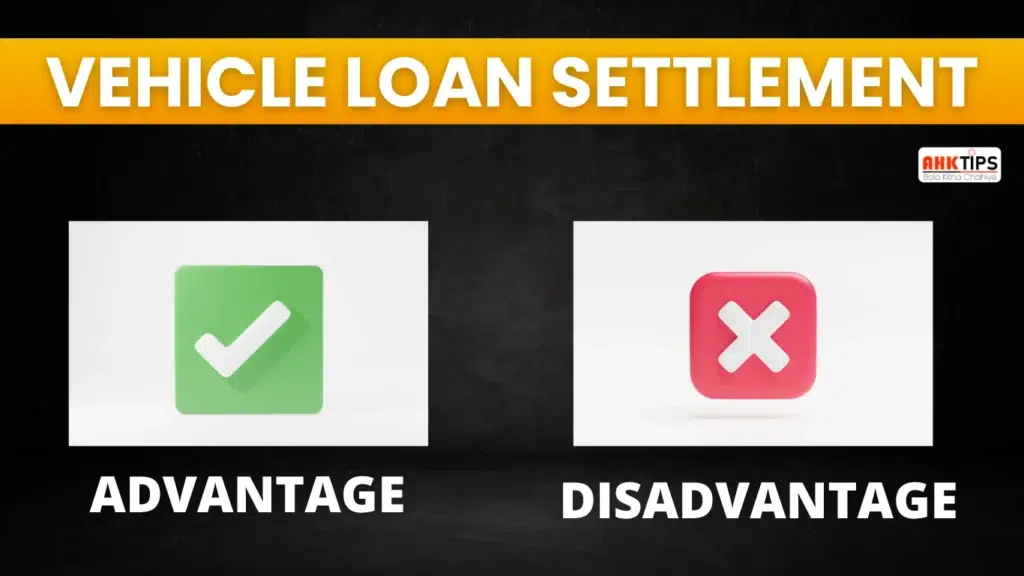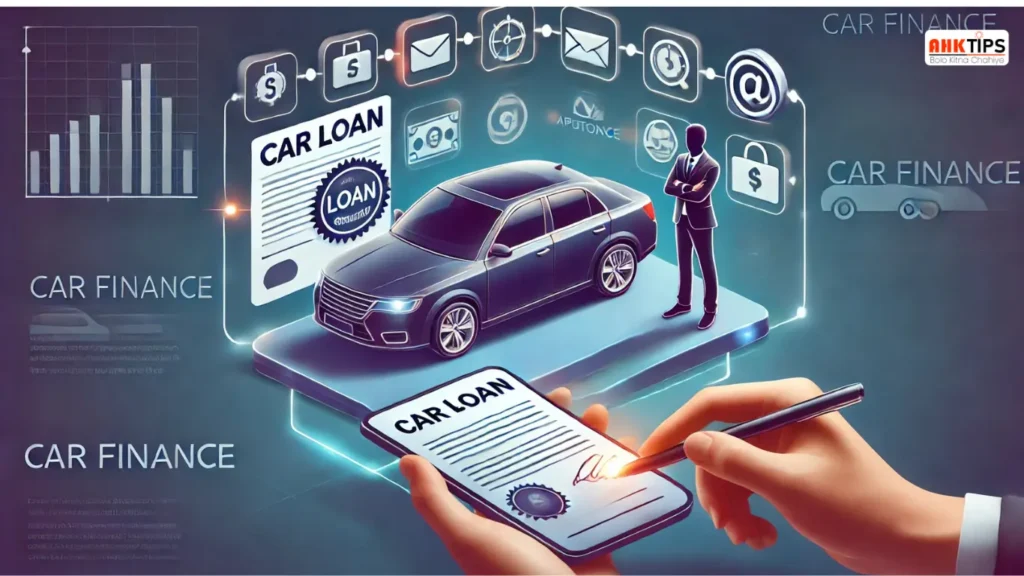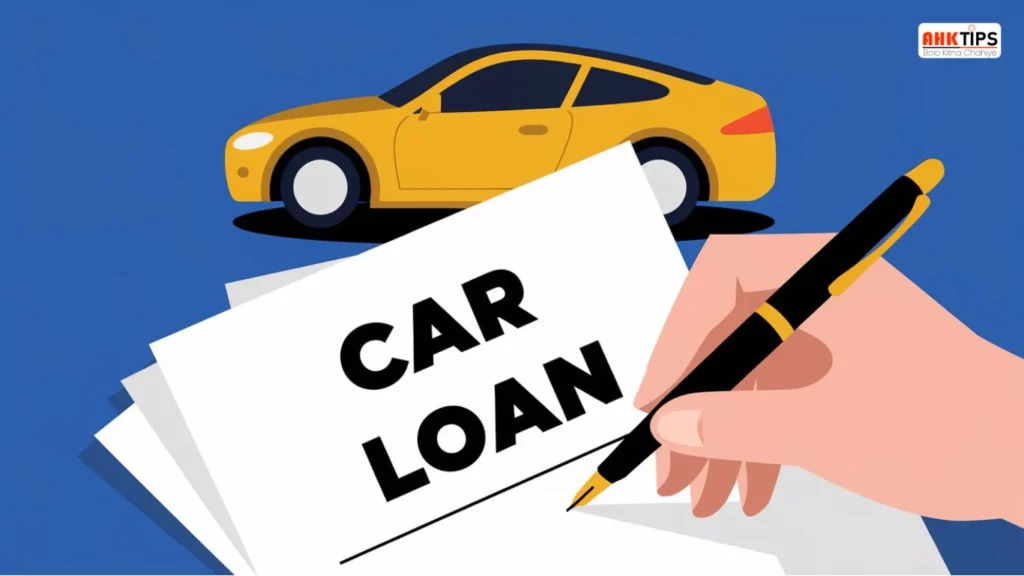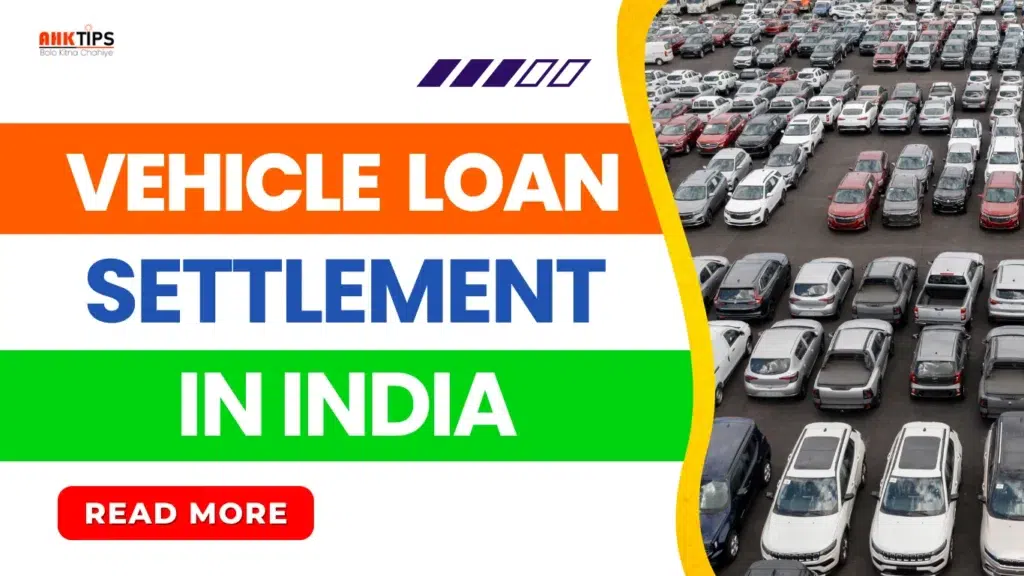Summary
If your financial circumstances prevent you from paying it off completely, you can choose to settle your auto loan. This facilitates negotiations with the lender and reduces the closing payment of the lump sum loan. It will help you avoid repossession and speed up loan settlement, hence reducing stress. Meanwhile, its negative aspects may perhaps include additional fees, a poor credit score and difficulties in getting the next loan. Before agreeing to your settlement demand, banks review your car’s price, payment record and financial circumstances. If you want a settlement, be honest, present strong evidence of your situation and offer a fair amount for the best chance of acceptance.
Introduction
If you have financial difficulties, including job loss, medical problems, or a decline in income, a vehicle loan may become difficult to handle. Under such circumstances, a vehicle loan settlement could be a reasonable one. It allows you to negotiate a smaller lump sum payment instead of the whole amount owing with your bank or credit business. This helps you prevent losing your car and lessens the burden of handling growing fines or ongoing lender calls. We go over in this post how auto loan settlement works, its advantages and disadvantages, and how banks determine whether to take your settlement request.
What is Vehicle Loan Settlement?
Resolving a vehicle loan when you cannot make payments is accomplished by vehicle loan settlement. It helps you and your lender decide to pay less than what you first owe. You work with the bank or finance firm to cancel the account with a lump-sum payment instead of reimbursing the entire amount.
Why Do Borrowers Consider Vehicle Loan Settlement?
Usually, vehicle loan settlement is taken into account when under financial difficulty. Losing a job, going through a medical crisis, or having income drop could all be causes. Whatever the reason, negotiating a settlement can help you prevent losing your car through repossession when paying payments becomes difficult.
How Does the Settlement Process Work?
The settlement of your vehicle loan calls for correspondence between you and your lender. Here is a basic overview of how it usually goes:
Contact Your Lender
Reaching out to a bank or loan company and honestly presenting your financial status comes first. Send records proving your health problems or income drop. To enable your lender to value your challenges, be open and direct.
Prepare Your Paperwork
Your lender can require you to send documentation supporting your claim. That could cover financial statements, health reports, termination letters, and pay stubs. Presenting correct documentation strengthens your case by making it more real and reliable.
Discuss Possible Settlement Amount
You might be able to negotiate a settlement if your lender looks over your financial circumstances. Usually, less than what you owe, this makes sense from the lender’s standpoint. They will balance their odds of recovery against your financial situation.
Final Approval and Payment
Should you and your lender decide on a settlement value, you will have to pay it all at once. The lender will release the documentation on the vehicle if you pay the money; the account will be noted as “settled.”
Advantages of Vehicle Loan Settlement
The settlement of vehicle loans can be beneficial in a lot of contexts. These are some important advantages:
Allows the Closure of Debt
Settlement lets you end the account once and for once instead of remaining in a position of financial stress and sliding further into debt.
Saves Your Credit Score from Further Damage
The settlement will impact your credit score, but generally speaking, it’s less detrimental than having your account marked as a non-performing asset or having your car seized.
Allows You to Move Forward
You can go forward free from this financial weight after the account is cancelled.
Possible Drawbacks of Settlement
Vehicle loan settlement has certain advantages, but it is not without disadvantages either. Your credit score could drop, and prospective lenders could see you as a riskier borrower. Still, it’s usually a better choice than running away from the payments and losing your car entirely.
Final Thoughts
When financial difficulty makes it difficult to keep up with payments, borrowers may find a good solution in vehicle loan settlement. It enables you to work out an acceptable sum to cancel the account and forward. If you are thinking about this alternative, be open with your lender and send appropriate documentation to justify your circumstances. Negotiating in good faith and being honest about your financial problems will help you to release some of your financial burden and provide mental serenity.
Advantages of Vehicle Loan Settlement
When you find it difficult to make payments, vehicle loan settlement can be a good approach to alleviate financial anxiety. It allows you to negotiate a smaller sum to pay off your debts rather than battle escalating fines or payments. Many benefits of auto loan settlement abound, and they can greatly affect your financial future.
Easier Way to Handle Debt
Many borrowers find that financial difficulties, health crises, or a job loss situation make car payments difficult to handle. A settlement allows you to pay a smaller lump sum and rapidly settle your debts instead of spiralling further into financial crisis. When you can’t pay back the whole amount, it offers a simpler road forward.
Less Stress and Anxiety
One major source of stress and strain can be having a vehicle loan you cannot pay off. Creditors could threaten vehicle confiscation, contact you nonstop, or send legal letters. One advantage of vehicle loan settlement is lessening of all this stress. Once you have a settlement, these legal concerns and collecting calls fade and you can relax.
Prevents Vehicle Seizure
Your car might be taken back by the bank if payments go past due and you ignore letters from your lender. Settlement helps you get out of this situation. Rather than losing your car, you might work out a smaller amount to pay your debts and keep ownership.
Allows Faster Closure of Debt
Closing your car loan enables you to do it far more quickly. You pay a lump sum or a smaller amount instead of making payments over the years and instantly settle the debt. Clearing your debts can help you move ahead free from this financial burden sooner rather than later.
Saves You from Rising Penalties
Late fines and extra costs usually follow from nonpayment. Penalties and compound interest let the amount you owe expand rapidly. Settlement allows you to pay a set sum instead of cutting these future fines. It helps to stop your debts from spiralling out of control and makes repayment much more challenging.
Gives Opportunity to Rebuild Credit
If you miss payments or start to default, your credit score could decrease. But when you pay off your car loan, it indicates that you tried to pay off your debts rather than neglecting them. Though it is not as powerful as a complete payback, a settlement shows to future lenders that you behaved sensibly under financial constraints. With time, this will enable you to restore financial credibility and financing score.
Allows Better Financial Planning
Once your vehicle loan is settled, you can concentrate on handling your next financial objectives. You can better budget your money, pay off other debt, or perhaps begin saving for future needs without the weight of this outstanding sum. It allows you to forward free from the weight of past-due debts dragging you back.
Gives You a Fresh Start
One approach to erase the slate completely and start over is vehicle loan settlement. It helps you to handle a difficult financial circumstance and go forward free from residual anxiety or worry. Clear records and reduced financial pressure will help you make wise financial decisions and prevent possible future issues.
Drawbacks of Vehicle Loan Settlement
When you find yourself unable to make monthly payments, paying a vehicle loan sounds like a simple fix. Still, one should be aware of some expected negatives before deciding on this road. While settlement could bring some momentary relief, it can also cause long-term issues that might endanger your financial condition.
Negative Impact on Credit Score
One of its main drawbacks is how settlement of vehicle loans affects your credit score. The bank sees on your credit record a debt paid off as “settled” rather than “closed”. This mark indicates that you did not reimburse the whole starting agreed upon amount. Your credit score may thus drop, which would make qualifying coming forward for credit cards or loans more difficult.
Difficulty in Getting Future Loans
Your credit record reveals debt settlements spread over several years. Lenders collect a settlement as evidence of your possible high risk as borrower. Should you be seeking a new loan, banks and other financial institutions could be reluctant to accept your application. Should they approve, you may find stiffer terms or more lending rates. This can make next borrowing more costly and demanding.
Legal Consequences in Some Cases
Settlement does not always shield you from legal action even if it usually marks the end of the lender’s collection effort. Should you refuse to follow the terms of the settlement or if the settlement is not clearly agreed upon in writing, the lender may nevertheless legally be able to recover the outstanding money under defined circumstances. This risk can cause more strain than it offers overall comfort from.
Loss of Trust in Financial Institutions
Respected between you and the financial institution, repaying a vehicle loan can sour matters. Lenders and banks would see you as someone who might not be able to satisfy terms for full return. Not only for loans but also for other financial products such company finance or overdraft facilities; this lack of trust can restrict your future choices.
Limited Access to Premium Financial Services
Those having past-due debt were not able to make use of premium financial services. Attractive offers for persons with clean credit records are sometimes reserved by banks and other financial institutions.
A settled car loan could keep you from getting:
- Pre-approved personal loans
- Higher value credit cards offer perks.
- deals on cheap interest loan possibilities
This can cost more down road and reduces your financial freedom.
No Full Ownership Satisfaction
Ignoring your debt as decided upon results in a vehicle loan settlement. Though you might keep the car, you might not be as happy as someone who paid their dues intelligently and entirely. Sometimes your perspective on the asset and your financial achievement changes depending on this lack of responsibility.
Possible Additional Costs
Returning a loan can have extra or hidden fees. Under the agreement, certain lenders could demand settlement fees or handling charges. These expenses could lower the financial gain loan payback would bring. Before deciding on any settlement, one should closely review all information to prevent unanticipated financial loss.
Impact on Co-Applicants or Guarantors
Should your auto loan call for a guarantor or co-applicant, the settlement can potentially impact their credit histories. For them seeking loans or other financial products, this can provide challenges. Personal or professional connections may sour should one be ignorant of or unprepared for its consequences.
How Banks View Your Settlement Application
When you seek for a vehicle loan settlement, banks do not provide it immediately. Lenders approach their decisions on whether your case really calls for settlement holistically. Knowing the main elements banks take into account can help you better present your application and raise your approval chances.
Financial Hardship and Repayment Ability
Your financial condition is among the most critical things banks consider. Lenders make sure you really cannot pay back the loan as agreed upon. They cover specifics include lost income, company collapse, or unanticipated medical expenses likely to affect your pay-ability. Banks require you to provide well defined supporting evidence proving your financial difficulties. Your request may be denied without strong evidence.
Payment History and Defaults
Banks painstakingly check your credit history before thinking about a settlement. The bank might believe you can still pay back the loan whether you have been making consistent payments or if you have lately missed EMIs. Conversely, a long history of late payments or continuous defaults suggests to the bank that both for you and the lender a settlement would be a prudent choice.
Efforts at Prior Communication
Before requesting settlement, banks also take into account whether you tried interacting with them. In your case, asking E MI relief or restructuring first will help you avoid approaching the bank for a settlement. Before resorting to settlement as a last option, lenders would much rather see that you investigated other options.
Value of the Vehicle and Recovery Options
The bank figures the car connected to your loan’s current market worth. Should the car’s market worth be high and the bank thinks they can recover most of the debt by repossessing and auctioning it, they could be less likely to approve your settlement demand. The bank might, however, take settlement into serious consideration if the value of the car has dropped dramatically or if selling it would not pay the existing debt.
Previous Settlement or Default Record
Your credit history helps to somewhat assess your settlement application. Should you have resolved previous loans or past defaults, the bank could view you as more prone to be problematic. This lessens your chance of having your settlement demand approved. Usually handling major, one-time financial problems, lenders would rather assist borrowers who have otherwise exhibited excellent credit discipline.
Proposed Settlement Offer
Banks attentively examine your offer all through the settlement process. They might be more inclined to approve if you offer a fair and reasonable sum that will enable the bank to recur most of the loan. Conversely, giving a too low or unrealistic figure would most likely result in rejection of your application.
How to Approach a Bank for Settlement
To raise your chances, be honest, bring all the necessary paperwork and make a reasonable offer commensurate for your real capacity to pay. A well-prepared application presents to the bank your integrity and willingness to cooperate, therefore raising your chances of acceptance.
Understanding bank consideration for auto loan settlement helps you more closely fit your expectations and approach with how banks really make decisions.
Conclusion
If you are struggling to pay off your car loan and want to avoid losing your vehicle, vehicle loan settlement is a useful option. It allows you to close the loan and pay a lower agreed amount, allowing you to start afresh. Still, it is important to know that it can compromise your credit score and future loan prospects. Before endorsing a settlement, lenders also review your financial background. If you want to go ahead, always be honest with your lender, submit the right paperwork and make a fair offer. This will enable you to handle your money better and increase your chances of getting your settlement approved.
FAQ’s
Vehicle loan settlement is when you and your lender agree to close your loan with a lump-sum payment that is less than what you owe.
Yes, settling your loan will lower your credit score because it shows you did not pay the full loan amount.
Banks may agree if you prove you are in genuine financial trouble and they see settlement as a better option than repossession.
Yes, if you pay the agreed settlement amount, the lender will close the loan, and you can keep your vehicle.






